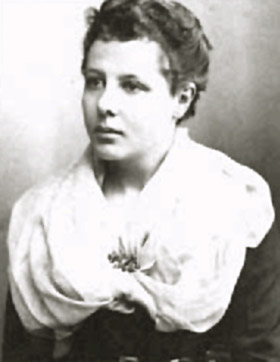 Indian history is rich of the contributions of many European and American women who played a vital role in the important religious movements. Annie Besant is thus a significant figure in this context. She was a prominent Theosophist and women`s rights activist who was born on October 1 1847. She was a renowned orator and supporter of Indian self rule. After her father`s death, her mother brought her up with a strong sense of duty to society and a strong sense to become an independent woman. However, Annie had a very disastrous marriage with Frank Besant. She got separated from her husband and went back to London. Annie Besant was renowned for writing short stories, books for children and articles.
Indian history is rich of the contributions of many European and American women who played a vital role in the important religious movements. Annie Besant is thus a significant figure in this context. She was a prominent Theosophist and women`s rights activist who was born on October 1 1847. She was a renowned orator and supporter of Indian self rule. After her father`s death, her mother brought her up with a strong sense of duty to society and a strong sense to become an independent woman. However, Annie had a very disastrous marriage with Frank Besant. She got separated from her husband and went back to London. Annie Besant was renowned for writing short stories, books for children and articles.
Annie Besant always fought for the causes she thought were right, relating to freedom of thought, women`s rights, secularism, birth control and workers` rights. After her separation from her husband, she started writing a column for the National Reformer. Annie Besant joined the theosophical society and after becoming a member of the society, she came to India for the first time in 1893. Subsequently, she devoted much of her energy to the theosophical Society of India and also played a significant role in India`s freedom. Annie had made noteworthy contributions to the Indian society by setting up a new school for boys at Varanasi: the Central Hindu College. The school aimed at building a new leadership for India. They spend their lives as monks and devoted a long time in prayer. The boys were trained at studying the Hindu scriptures along with modern science. Finally, Annie and fellow trustees of the Central Hindu College agreed to Government of India`s precondition that the college should become a part of the new University. Thus, the Banaras Hindu University started functioning from 1st October 1917 with the Central Hindu College as its first constituent college.
Annie Besant succeeded Olcott as president of the theosophical Society and clearly identified its role as a religious and cultural one to the exclusion of politics. Thereafter, she continued to participate in concrete political struggles and joined the Indian National Congress. By 1915, she founded the All-India Home Rule League in to impose a more radical political programme on to the Indian National Congress. On the other hand, the theosophical society played a significant political role. In India, theosophy became an integral part of a wider movement of neo-Hinduism, which helped to provide Indian nationalists with a decriminalizing ideology.
Annie Besant launched the Home Rule League in 1916, by modeling demands for India on Irish models. Thus this was for the first time that India had a political party to fight for change. In June 1917 Mrs. Besant was arrested and captivated at a hill station. However she found a strong support on Congress and the Muslim League. Both the organizations together threatened to launch protests if she were not set free. Thus, Annie Besant`s arrest focused for protest, giving those who wanted long-term independence for India. Her arrest also gave a chance to work the Indians together for an achievable goal. Annie Besant thus provided her support for the betterment of the country. Living her impact, she died on September 20th 1933 in Adyar, India.



















